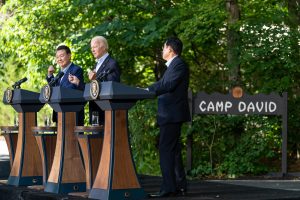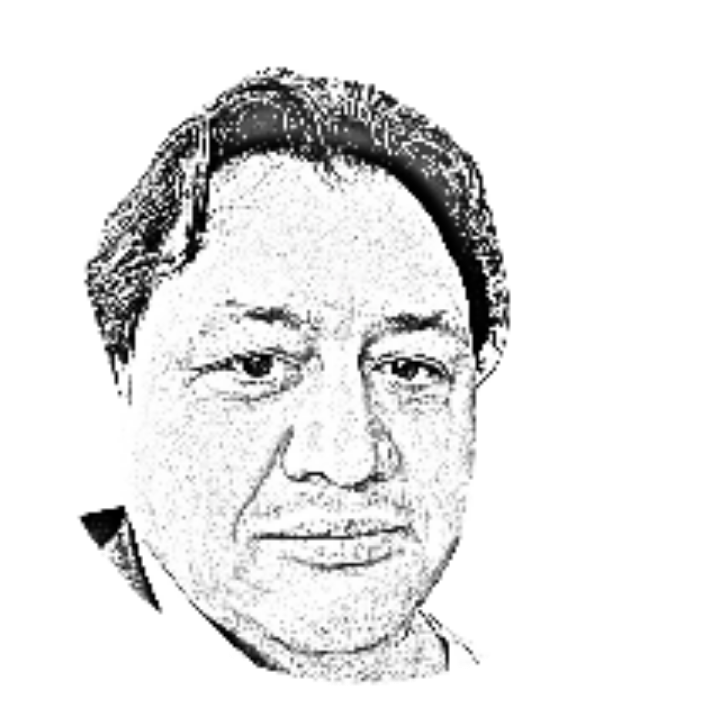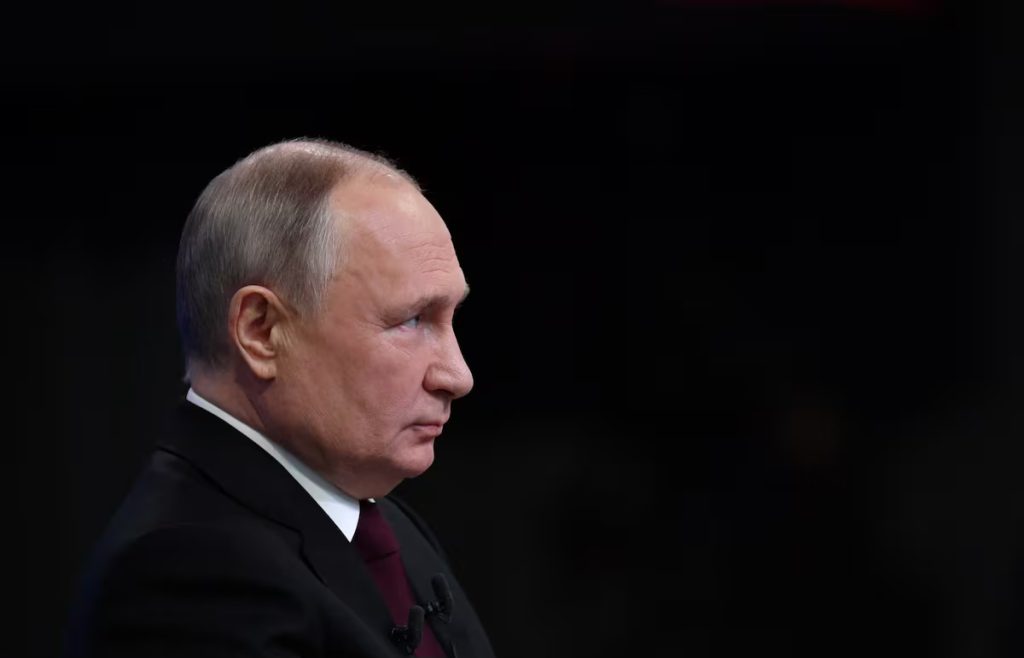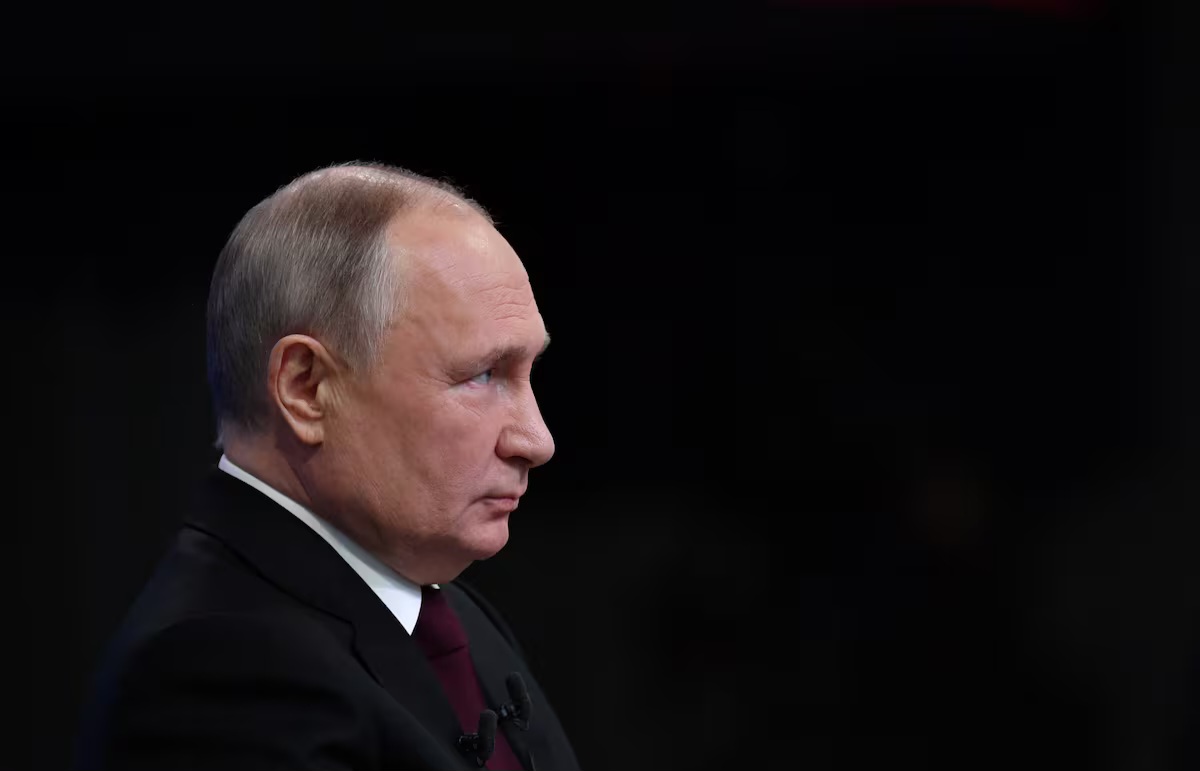








Putin faces triple threats: re-election, a deadly terrorist attack, and mounting opposition at home, testing his regime’s survival amidst international pressures.


Welcome back to Europe, where we take a look at the escalating crises in Russia as President Putin, recently re-elected under dubious circumstances, faces a deadly terrorist attack, mounting internal opposition, and relentless international pressures.
On March 22, 2024, only five days after being re-elected as the President of the Russian Federation for an unprecedented fifth mandate with purportedly 88% of the vote – modest by Soviet standards! – Vladimir Putin faced his greatest nightmare: the opening of a third front against his increasingly authoritarian, imperialistic regime.
On that fateful Friday, four armed Tajik men belonging to the Central Asian terrorist organization Islamic State – Khorasan (ISK) entered the Crocus City Hall, in the northern suburbs of Moscow, just as a concert was about to start. They opened fire on the defenseless crowd inside the venue and killed some 140 people. Despite President Putin’s efforts to somehow link it to Ukraine and the West, the evidence is clear that this attack – the deadliest terrorist attack in Russia in two decades – was carried out by the ISK, an organization that did not hesitate to immediately claim responsibility for it.
This attack could not come at a worse time for the Putin regime, whose military intervention in Ukraine, so costly in money, materiel and manpower, enters its third year. With European NATO countries more determined than ever to continue supporting Kyiv to resist and ultimately reverse Russian aggression, and with the long-delayed signature into law by US President Bidentof a massive 62-billion US dollars aid package to Ukraine, any hope Putin may have had that he could soon complete his ‘special military operation’ in triumph is quickly fading away.
His attempt to disrupt and degrade NATO’s center of gravity – the continued close cooperation and coordination between the US and EU in military matters in general and in their support for Ukraine in particular – has spectacularly failed. So has his attempt to silence and subdue Russian citizens’ internal opposition to his regime, which resulted in the ruthless ‘termination’ of Alexey Navalny, the country’s most famous and feared – by Putin and his acolytes – opposition leader. Navalny’s death, far from destroying Putin’s second, internal front, only ensured its survival and increasing visibility – for martyred leaders only become stronger when they die.
As a self-proclaimed avid student of Russian history, President Putin is well aware that the overthrow of the Russian Empire’s last Tsar, the seemingly all-powerful Nicholas II, in 1917, came after three years of brutal losses during the Great War, exploited by well-organised and highly motivated internal political opposition groups. Together, these factors led to Russian troops’ growing unwillingness to accept being sacrificed as cannon fodder to an unending war of attrition and the ultimate collapse of the Romanov dynasty that had ruled Russia for over three centuries. This explains in large measure why Putin was so determined to eliminate Navalny and silence his supporters. It also explains why he is stretching to their limits his county’s human, financial and industrial resources to triumph over Ukraine, achieve his main strategic goal of effectively dismantling this country, and thus end the ongoing conflict by renewing Russia’s status as one of the world’ great powers, in the same league with the USA and China.
The dramatic opening of a third, transnational terrorist front, with deep roots in Russia’s Central Asian ‘near abroad’ compounds President Putin’s nightmare of having to simultaneously fight determined and well-funded external adversaries – Western states members of a revitalized and enlarged NATO, as well as equally well-motivated and resourceful internal opposition groups. Since the Crocus City Hall terrorist attack carried out by the ISK five weeks ago, racial tensions scapegoating Russian residents and citizens of Central Asian origin and Islamic faith has been on the rise in Russia. This is a very destabilizing trend for a country whose population is 10% Muslim. That such a brazen and deadly attack could be carried out successfully and result in so many civilian casualties also deeply damages in Russian citizens’ eyes Putin’s claim to be the only man alive capable of effectively protecting them from both internal and external threats and ensure their safety, security, and well-being.
President Putin is well aware that, despite his staged ‘overwhelming victory’ in the most recent Russian Presidential elections, his hold on power is more precarious that ever. He now knows that he has to fight – and win – on three fronts, external, internal, and transnational, none of which show any sign of collapsing. To the contrary, they are more aligned than ever in their respective aims to weaken his hold on power. The shadows of Nicholas II and Stalin are now surely haunting the Kremlin’s halls and more and more often disrupting Vladimir Putin’s much-needed nightly sleep.
The former KGB officer now ruling Russia for almost a quarter-century knows better than anyone else that his regime cannot survive a three-front war over the long-term. He knows that unless he disrupts their increasingly coordinated efforts to achieve regime change in Moscow, he may well join his illustrious Imperial and Soviet predecessors on Leon Trotsky’s famous ‘dustbin of history’. And with each passing day, he is increasingly dreading that for him, there is ultimately no way out.
Written By: BATUHAN GUNES
Written By: KRISTIN HYNES
Written By: ERIC SONG
Written By: ALEXANDER BERGH
Written By: KATE-REID SMITH
Written By: JOSEF SCHOEFL
Written By: PATRIC MCFARLAND
Written By: FATIH CEYLAN
FA’s flagship evening newsletter guilding you through the most important world streis ofthe day. Delivered weekdays.
